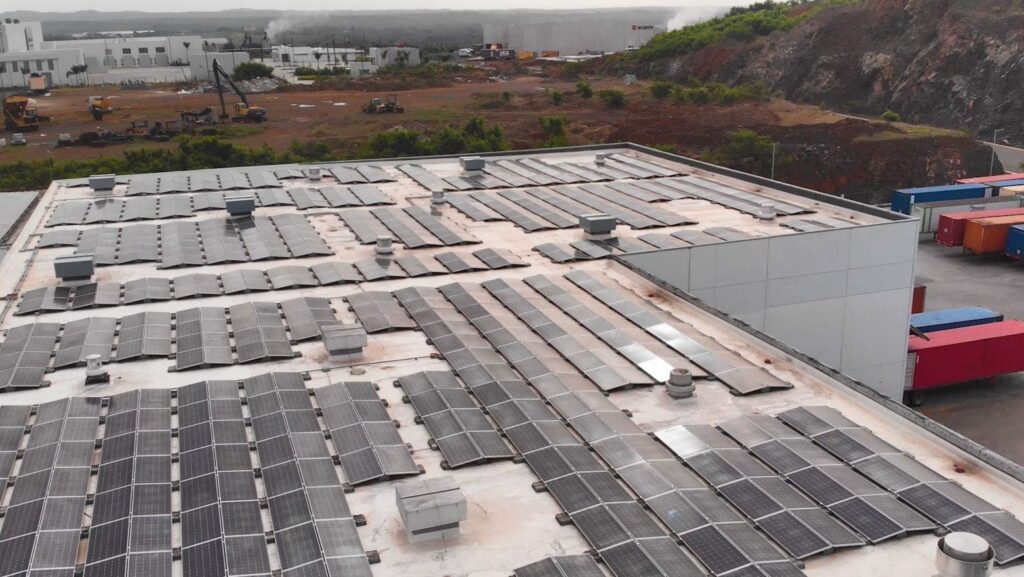In the framework of World Environment Day, PepsiCo unveils a series of local solar energy initiatives in Central America and the Caribbean. These initiatives are part of its transformative vision, “Win with PepsiCo Positive (pep+),” the company’s comprehensive strategy to be increasingly sustainable throughout its value chain, putting people and the planet at the center.
In this region, PepsiCo began its journey of harnessing solar energy in 2019 and, to date, has managed to reduce nearly 49 thousand tons of carbon dioxide (CO2) emissions in its manufacturing and transportation activities, which is equivalent to the total CO2 emissions generated by approximately 10,500 cars during 365 days. Globally, the company’s goal is to reduce CO2 emissions by 75% by 2030. In Central America and the Caribbean, it has made 21% progress toward this goal through a comprehensive plan to reduce fuel use and use renewable energies, both in the company’s fleet and in its manufacturing facilities and logistics centers.
What actions are being taken in the area of solar energy?
The region’s most ambitious solar panel project is at the Caribbean Plant in the Dominican Republic, which has 2,667 panels that generate 62,000 kilowatts per month. This represents 20% of the plant’s total consumption. In the framework of Environment Day, 456 more panels will be inaugurated this June, making the Caribe Plant the site with PepsiCo’s largest solar energy generation in Latin America.
In Guatemala, the OMNIA distribution center in the municipality of Villa Nueva has installed 324 solar panels that partially supply energy for the site’s operation, achieving a savings of 37%, equivalent to 1,578.6 kWh per year.
On the other hand, in Guatemala’s capital, at the San Juan Plant, where well-known brands such as Lay’s, Tortrix, and Doritos are produced, local teams have found creative solutions to save energy at every opportunity. For example, employees’ cell phones are recharged at special stations that operate exclusively with solar energy.
Finally, different sustainability projects are connected innovatively to multiply their benefits in El Salvador and Honduras’ operations. Three rainwater harvesting systems operate thanks to the energy generated by solar panels in those same facilities.
“With PepsiCo Positive, we are transforming what we do and how we do it to ensure we generate positive change for the planet and people, while continuing to create smiles in every sip and every bite. As we mark World Environment Day, we reiterate our global commitment to reduce CO2 emissions and continue to design innovative solutions, large and small, that increase our daily use of renewable energy,” said José Bagnardi, General Manager for PepsiCo Foods in the Caribbean and Central America.
Pep+ creates long-term sustainable value and competitive advantage for PepsiCo and aims to transform the industry. It seeks to inspire and collaborate with other key players to foster social, environmental, and economic change. The strategy is based on three interconnected pillars: crops that restore the earth, a circular and inclusive value chain, and motivating people through its iconic brands to make choices that create more smiles for themselves and the planet.
“We see pep+ as the present and the future of our company and we are confident that sustainability is the best path for everyone,” concluded Bagnardi.

